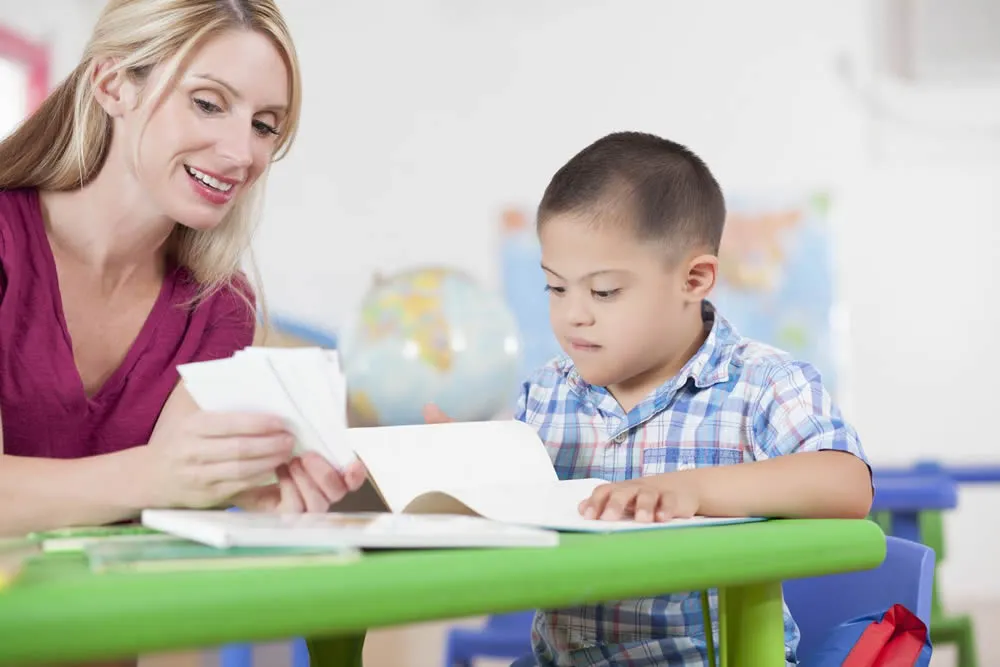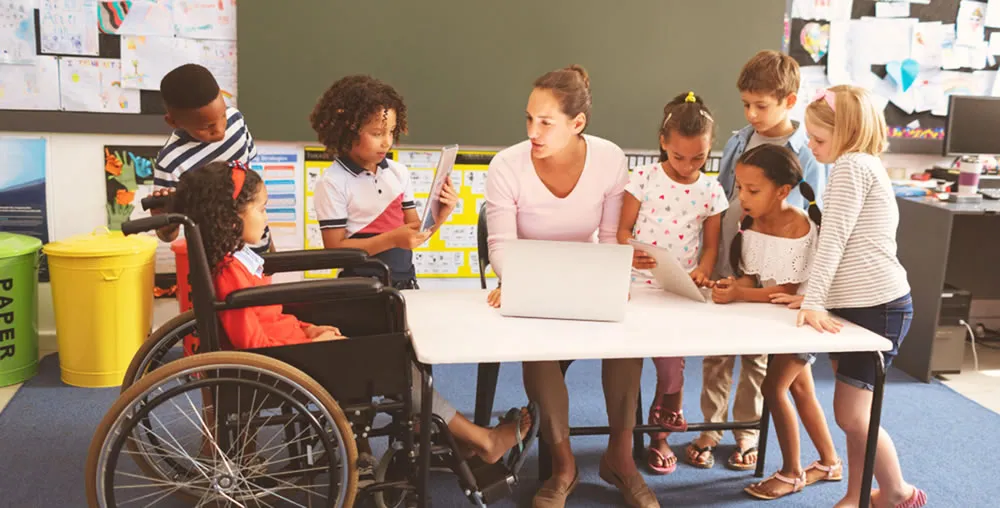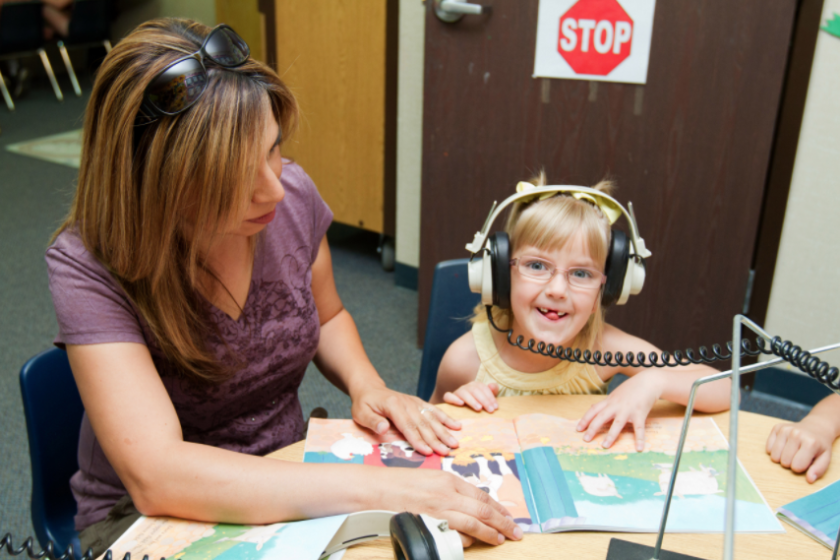Special Education Teacher Qualifications
 Source: verywellfamily
Source: verywellfamily
Special Education Teacher Qualifications
Navigating the challenging but rewarding field of special education requires a unique set of qualifications. These attributes not only enrich the career of educators but significantly enhance the learning experience of students with diverse needs. Special Education Qualifications
In this enlightening piece, we aim to shine a spotlight on ‘Special Education Teacher Qualifications,’ discussing the key competencies, academic credentials, and personal qualities that truly make a difference in this specialized sector.
Call here at 9321024137 / 9869866277 for a better understanding of the course.
For Downloading the brochure Click Here
As we peel back the layers of this intricate vocation, you will gain deeper insights into what it takes to be an exceptional educator in the realm of special education.
Table of Content
- Special Education Teacher Career Path
- Special Education Courses Online
- Special Education Course Duration
- Teacher Special Education Salary
- Special Education and Distance Learning
- Skills Needed To Be a Special Education Teacher?
- Why Is Special and Inclusive Education Important?
- Why IEP Is Important For Special Education?
- How Can I Become A Special Educator After 12th?
- Learning Difficulties Courses
 Source: internationalteacherstraining
Source: internationalteacherstraining
Special Education Teacher Career Path
A Special Education Needs Course opens doors to intriguing and lucrative careers. This credential lets you work with different populations in varied situations.
Popular jobs include:
Intervention Specialist
This job involves early screening and assistance for special needs youngsters. You would design inclusive education lesson plans. To improve the child’s learning, building connections with teachers, parents, and support workers is essential.
Private Special Needs Tutor
As a home-based tutor, you’d help a youngster improve their academic and life skills.
Multidisciplinary Team Member
You would collaborate with physiotherapists, psychologists, and speech therapists to meet a child’s requirements and encourage holistic development.
Education Advisor
You would work with mainstream instructors to modify the curriculum for special needs students. You would also organize parent training and academic interventions.
Rehab educator
Helping kids grasp fundamental ideas and conceptual learning is your duty here. To develop abilities, you’d collaborate with parents, teachers, and support personnel.
Entrepreneur in Special Education
Open a center to assist youngsters with special needs overcome developmental setbacks and become independent.
Special educator at a non-profit
You’d analyze a child’s skills and create effective teaching plans to help them grow.
Inclusive Education Support Teacher
You would tutor special needs students. Support teachers help classroom teachers handle special needs children.
Call here at 9321024137 / 9869866277 for a better understanding of the course.
For Downloading the brochure Click Here
Special Education Courses Online
Let not personal commitments hinder your aspiration to earn a Special Education certification. Vidhyanidhi Education Society offers you the opportunity to acquire online diplomas in special education.
Here’s what makes our online mode unique:
- Adaptive Learning: Tailor your learning speed to suit your schedule.
- Global Validity: Your teaching career can take off anywhere with our online Special Education Course.
- Same-as-Regular Certification: The online nature of the course isn’t stated on the certificate, matching the regular mode’s prestige.
- Accessible Pricing: We believe in providing quality education that everyone can afford.
- Economical: You save on commuting costs, and can invest that time and energy into your studies.
- Home-Based Delivery: All essential course materials, communications, and your certificate are delivered to your doorstep.
- Accelerated Learning Option: Our fast-track program offers you the chance to complete your studies ahead of time.
 Source: thoughtco
Source: thoughtco
Special Education Course Duration
At Vidhyanidhi Education Society, we offer an expedited pathway for our Special Education Diploma course, shortening its duration to just one year with our unique FAST TRACK option.
Teacher Special Education Salary
As recognition of Inclusive Education continues to soar, the requirement for Special Education Teachers correspondingly increases. Initial earnings for professionals in this arena hover between 1 and 2.5 lac. Possessing a Special Education Courses diploma from a government-endorsed institute can significantly enhance your chances of securing better job positions with generous salaries. The job also includes monetary benefits like promotions and incentives, adding to its financial appeal.
Special Education and Distance Learning
Unleash your potential in the field of Special Education and pave the way for a successful career, even if you face time or location constraints, with our revolutionary Diploma in Special Education Distance Learning program.
Break free from the barriers of traditional education and embark on a flexible learning journey.
Explore the remarkable features offered by Vidhyanidhi Education Society’s Diploma in Special Education Distance Learning program, designed to revolutionize your educational experience:
- Enjoy the convenience of doorstep delivery for all study materials, ensuring a seamless learning process.
- Attain a globally recognized certification, opening doors to diverse employment opportunities across the globe.
- Benefit from our 100% Employment Assistance Guarantee, providing you with the necessary support to secure a fulfilling career in Special Education.
- Develop your practical skills through an internship letter included in the course, empowering you with hands-on experience.
Skills Needed To Be a Special Education Teacher?
Being a special education teacher can be a rewarding, yet challenging, role. Here are some skills that can significantly benefit those in this field
Patience
Working with students with special needs may require more time and effort to complete tasks that others may take for granted. Patience will ensure that you remain supportive and understanding.
Creativity
Not all teaching methods work for every student, particularly in special education. Teachers need to be innovative and adaptable, developing different methods to deliver information and make learning enjoyable and effective.
Problem-solving
Special education teachers often need to come up with solutions to unexpected issues or challenges their students may face. The ability to think quickly, assess the situation, and apply an effective solution is crucial.
Interpersonal Skills
Good communication with students, parents, and other staff is important. Being able to express empathy and understanding can help foster a supportive and inclusive environment.
Flexibility
As a special education teacher, you may often find yourself in unexpected situations. Being able to adapt your plans or strategies can be a great advantage.
Organization Skills
Managing individualized education programs (IEPs), maintaining student records, and coordinating with other teachers and administrators all require excellent organizational skills.
Understanding Special Education statutes and Regulations: Knowledge of special education statutes, such as the Individuals with Disabilities Education Act (IDEA), is crucial. This information will guarantee that your pupils get the services to which they are legally entitled.
Behavioural Management Skills: Special education teachers may need to manage challenging behaviors from their students. Strategies could include positive reinforcement, setting clear expectations, and implementing behavioural interventions.
Knowledge of Particular impairments: It is crucial to have a thorough awareness of the many kinds of impairments and how they might impact learning. Understanding how to modify teaching methods for various requirements and recognising when to recommend pupils for further assistance are all part of this.
Perhaps most crucially, special education instructors must have a deep-seated enthusiasm for their profession and a commitment to bettering the lives of their children. This field can be emotionally challenging, but the potential rewards are immense.
Training and Certification: Special education instructors often require a degree in special education or a closely related discipline, as well as the appropriate teaching certification for their region, in addition to these abilities. Working with people who have special needs is a valuable experience, too.
Call here at 9321024137 / 9869866277 for a better understanding of the course.
For Downloading the brochure Click Here
 Source: graduateprogram
Source: graduateprogram
Why Is Special and Inclusive Education Important?
There are various reasons why special and inclusive education is necessary.
Chances for all students, regardless of their talents or disabilities: Special and inclusive education attempts to give equal chances for all students. It guarantees that kids with special needs are not shut out of the educational system and acknowledges that everyone has the right to decent education.
Individualised assistance: Special and inclusive education places a strong emphasis on giving students with a range of learning needs their own individualised help. It acknowledges that students learn in different ways and at different paces, and tailors teaching methods, curriculum, and resources to meet their specific requirements. This personalized approach maximizes their potential for academic and social growth.
Promotes acceptance and diversity: An atmosphere that values variety is fostered via inclusive education. The inclusion of kids with special needs or impairments in regular classes fosters communication, comprehension, and empathy among all students. This exposure helps break down barriers and reduces discrimination, promoting a more inclusive society.
Enhances social and emotional development: Special and inclusive education prioritises pupils’ social and emotional development in addition to their academic success. It gives disabled kids the chance to connect with others, form friendships, and learn important life skills. This welcoming setting improves their general wellbeing and equips them to participate meaningfully in society.
Individuals with disabilities are empowered by special and inclusive education because it gives them the information and skills they need to live independent and happy lives. It fosters the development of their self-assurance, self-advocacy, and problem-solving skills, empowering children to overcome obstacles and actively participate in society.
Legal and moral requirements: Inclusive education for students with disabilities is required by laws and regulations in several nations. It illustrates how civilizations have an obligation to provide everyone the same opportunity, regardless of their talents. Societies can guarantee that everyone has access to an education and is treated with respect and dignity by upholding these duties.
In conclusion, special and inclusive education is crucial because it upholds legal and moral commitments, supports diversity and acceptance, offers individualized assistance, encourages equal opportunities, and empowers people with disabilities. It is a crucial component in developing a diverse and just society that appreciates and respects the needs and rights of all of its members.
Why IEP Is Important For Special Education?
Because it serves as a legally enforceable document outlining the educational plan and support services for students with disabilities, an Individualized Education Programme (IEP) is essential for special education. The IEP is significant for the following reasons:
Individualized Approach
Each kid with a disability has specific requirements that the IEP is created to meet. It considers their abilities, obstacles, and particular educational needs. The IEP encourages personalized learning and maximizes the potential of the learner by customizing the education to the individual.
Legal Protection
In accordance with the Individuals with Disabilities Education Act (IDEA) in the United States, the IEP is a legal instrument that ensures the rights of students with disabilities. In addition to safeguarding kids against discrimination and guaranteeing equitable access to school, it makes sure that they get the proper special education services and accommodations.
Goal Setting and Progress Monitoring
The IEP sets specific goals and objectives for the student’s educational development. It outlines measurable targets and milestones that guide the educational team in assessing the student’s progress over time. Regular progress monitoring allows educators, parents, and other team members to track achievements, make necessary adjustments, and celebrate successes.
Collaboration and Communication
The IEP involves a collaborative effort among various stakeholders, including educators, parents or guardians, special education professionals, and sometimes the student themselves. In order to enhance the student’s educational experience, it acts as a platform for continual communication and cooperation. To ensure that everyone is informed and actively engaged in decision-making, regular meetings and discussions are held.
Access to Specialized Services and Supports
The IEP lists the specialized services, accommodations, and supports required to satisfy the particular requirements of the student. Additional teaching, assistive technology, specialized therapy, curriculum or assessment changes, as well as any other necessary interventions, may fall under this category. The IEP ensures that these services are provided to help the student overcome barriers and achieve educational success.
Transition Planning
For students nearing the end of their educational journey, the IEP plays a critical role in transition planning. It helps prepare students for life beyond school by setting goals related to post-secondary education, vocational training, employment, and independent living skills. The IEP facilitates a smooth transition from school to adult life, ensuring continuity of support and services.
IEPs are crucial for special education because they enable transition planning, encourage an individualised approach, provide legal protection, establish objectives and track progress, encourage cooperation, guarantee access to specialised resources, and promote legal protection. It acts as a road map to assist students with impairments navigate their educational path and realise their full potential.
Call here at 9321024137 / 9869866277 for a better understanding of the course.
For Downloading the brochure Click Here
 Source: csun
Source: csun
How Can I Become A Special Educator After 12th?
To become a special educator after your 12th grade, you’ll need to follow a series of steps that include further education and certification.
Here’s a general guide:
Earn a Bachelor’s Degree
The first step towards becoming a special educator is obtaining a bachelor’s degree. While some countries may allow you to teach without one, most require at least a four-year degree. The degree doesn’t necessarily need to be in special education, but it might be beneficial if it is. If not, degrees in fields like psychology, education, or child development could also be helpful.
Earn a Master’s Degree
A master’s degree in special education is often pursued by special education instructors. Although not always necessary, this may be advantageous and may lead to more work options. Master’s programs typically delve deeper into the nuances of special education, teaching you more specialized skills and knowledge.
Obtain a Teaching License or Certification
Almost all regions require teachers to be licensed or certified in some way. This usually involves passing a series of exams. The exact requirements can vary widely depending on your location, so be sure to look up the specifics for your area. For special education, there may be additional requirements or separate certifications.
Complete a Special Education Certification
In addition to a general teaching certification, you might also need a special education certification. This will likely involve more coursework and possibly more exams. Again, the exact requirements will depend on your location.
Gain Experience
Once you get your certification, you may begin instructing. You may begin as a general educator and transition into special education later on, or you could begin in special education straight immediately. Like any employment, your performance will improve as you get more experience.
Stay Updated
It’s important to keep up with developments in the area of special education since it’s always changing. This might include taking on more coursework, going to seminars or workshops, or just staying current with research.
Keep in mind that depending on where you are, requirements might change significantly. Always research the local criteria and don’t be afraid to ask local educators or educational organizations for advice.
Learning Difficulties Courses
Diploma in Learning Disabilities
This program focuses on understanding and addressing learning disabilities in individuals. It covers topics such as identification and assessment of learning disabilities, intervention strategies, inclusive education practices, and assistive technology.
Diploma in Special Education Needs (SEN)
This course is designed to equip educators with the knowledge and skills to support students with special educational needs. It covers a broad range of topics including various disabilities, inclusive teaching methods, individualized education plans, behavior management, and collaboration with other professionals.
Certificate in Shadow Teacher Training
A shadow teacher is someone who provides one-on-one support to a student with special educational needs in a mainstream classroom. This certificate program trains individuals to become effective shadow teachers. The curriculum typically includes topics like understanding diverse learning needs, behavior management techniques, communication skills, and strategies for supporting inclusion.
Get on board with Vidhyanidhi – Lead the future of Special Education now!
Call here at 9321024137 / 9869866277 for a better understanding of the course.
For Downloading the brochure Click Here
FAQs
What is resource in special education?
In Special Education, 'resource' can mean extra teaching, assistive tech, or modified materials; all designed to help special needs to succeed in their learning journey.
Which course is best in special education?
The 'best' course depends on your focus. VES offers comprehensive Special Education courses, refining skills for diverse needs, promoting inclusive learning.
Why do i want to be a special education teacher?
Becoming a Special Education Teacher allows to impact lives positively. Leveraging skills to enable all learners to reach their potential feels rewarding.
What is specialized instruction in special education?
Specialized instruction in Special Education involves unique teaching methods & resources tailored to assist students with disabilities in their learning journey.




